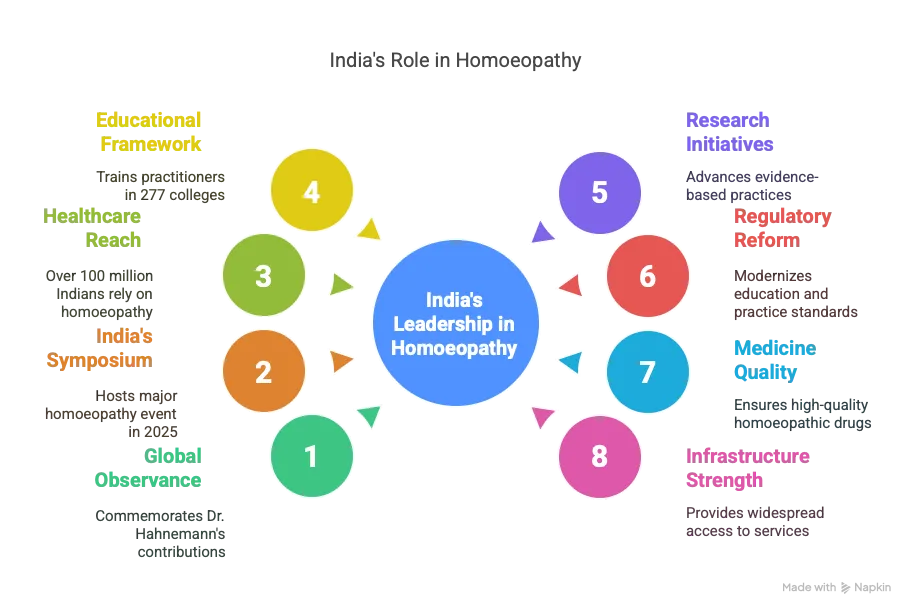UPSC
PIB
World Homoeopathy Day: India’s Role in Alternative Medicine
Last Updated
10th April, 2025
Date Published
10th April, 2025
Share This Post With Someone


- Global Observance: World Homoeopathy Day, marked annually on April 10, commemorates Dr. Samuel Hahnemann’s birth, celebrating homoeopathy as the world’s second-largest medical system.
- India’s Symposium: In 2025, India hosts its largest homoeopathy symposium in Gandhinagar, Gujarat, featuring research, discussions, and a major industry exhibition.
- Healthcare Reach: Over 100 million Indians rely on homoeopathy, supported by 3.45 lakh registered doctors, 277 hospitals, and 8,593 dispensaries nationwide.
- Educational Framework: India has 277 homoeopathy colleges, including 197 undergraduate and 77 combined UG/PG institutes, training future practitioners under the Ministry of AYUSH.
- Research Push: The Central Council for Research in Homoeopathy (CCRH) operates 35+ research centres, advancing evidence-based practices and scientific validation.
- Regulatory Reform: The National Commission for Homoeopathy (NCH), established under the 2020 Act, replaced the 1973 Act to modernize education and practice standards.
- Medicine Quality: The Pharmacopoeia Commission (PCIM&H) ensures high-quality homoeopathic drugs, with 1,117 official monographs standardizing remedies.
- Infrastructure Strength: India’s homoeopathy ecosystem includes 384 pharmaceutical industries and 8,697 AYUSH hospital beds, ensuring widespread access.
- Legislative Evolution: The 1973 Homoeopathy Central Council Act laid the foundation, but the 2020 NCH Act introduced transparent, research-driven governance.
- Global Leadership: India’s robust homoeopathy network positions it as a leader in holistic healthcare, balancing tradition with modern scientific approaches.
Glossary
- Homoeopathy: A medical system based on “like cures like,” using diluted substances to treat symptoms.
- AYUSH: Ministry overseeing Ayurveda, Yoga, Unani, Siddha, and Homoeopathy in India.
- NCH: National Commission for Homoeopathy, regulating education and practice since 2020.
- CCRH: Central Council for Research in Homoeopathy, driving research and evidence-based practice.
- Pharmacopoeia: Standardized guidelines for drug preparation and quality control.